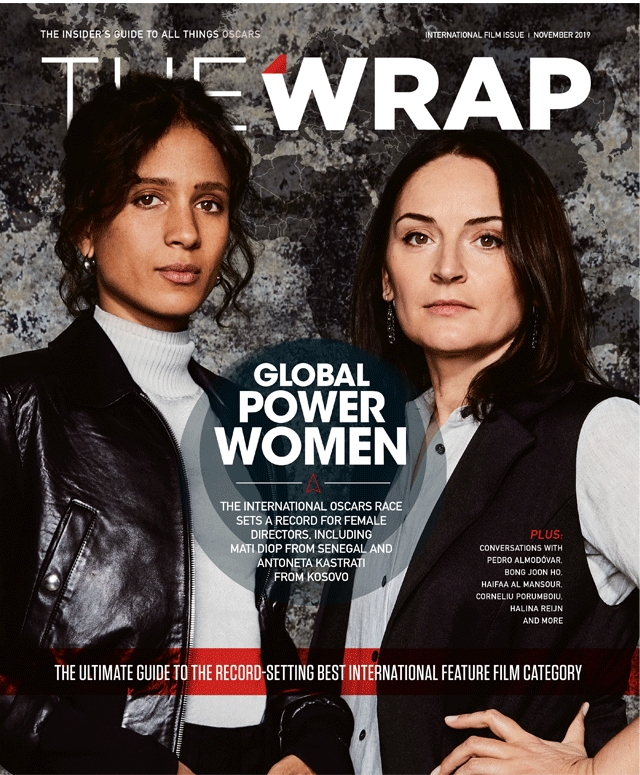How ‘M for Malaysia’ Filmmakers Mixed the Political With the Very Personal in Campaign Doc
A version of this story first appeared in the International Film edition of TheWrap’s Oscar magazine.
In the political documentary “M for Malaysia,” two first-time filmmakers, Dian Lee and Ineza Roussille, collaborated to chronicle the 2018 campaign of Tun Dr. Mahathir Mohamad (Roussille’s grandfather), a veteran politician who unexpectedly toppled the corrupt and scandal-plagued ruling party for the first time in the country’s 61-year history. While filming the campaign, the two figured that the candidate would lose, but his unexpected victory helped propel their film to become Malaysia’s entry in the Oscars’ Best International Feature Film category.
At what point in the campaign did you come on board to start filming?
DIAN LEE I started 16 days before the election. It was quite incredible to see a 92-year-old person campaigning, and you could see and feel the support that was swelling. So I asked his daughter if someone was following the campaign with a camera. We didn’t have pre-production, we didn’t have fancy cameras. It was a very small production team: three cameras and one sound guy. We put the team together in 24 hours, and none of us believed we could pull this off.
And we reached out to Ineza, but she turned the project down at first.
Also Read: Oscars International Race 2019: Complete List of Films
INEZA ROUSSILLE It took a lot of convincing. I was afraid of being seen to lose all objectivity, I suppose, as a filmmaker. I told my mom initially I’d try a couple of days, and then we got into the campaign, especially the huge rallies with thousands of people, and it felt like there was a lot of hope in the air. I realized I was the only person who could really do it, who could be by his side and be in the car and on the plane with a camera asking him questions, and he’d answer.
Were you thinking about a documentary film at that point?
LEE No. I’m a businessperson, an entrepreneur, I teach yoga. I know nothing about film production. But I thought being a mom equips you to be a film producer – you just do whatever it takes to get things done. So I thought, “We’ll just document everything and maybe use it as content in GE15 (the next general election).”
ROUSSILLE We thought the likelihood was that the government would retain power–and if they did win, what could we safely do with the footage? It was kind of unfathomable that my granddad would win and we could make a documentary.
LEE But about a week after he won, we sat down and said, “We have to turn this footage into something meaningful.”
Also Read: Academy Stumbles Again With Another Oscars International Disqualification, This Time Austria
Why didn’t you think he could win?
ROUSSILLE I knew that if everything was fair, he could absolutely win. But it wasn’t fair–the odds were completely stacked against him. And we had never changed governments before, so you didn’t even want to hope.
LEE On election day, I was in our version of an Uber, and the driver was saying that he didn’t believe that Najib Razak was stealing money. (The then-prime minister was found with $10.6 million in state money in his personal bank account.) He said, “If the scandal was real, how could he go to the U.S. and sit at the same table with Trump and play golf with Trump?” So by the time I reached the house, I told myself, “I’m not going to have expectations that he’s going to win.”
Did you ever worry that your personal connections to the prime minister presented a problem, that people would think you were making a puff piece?
LEE Of course. But from very early on, in order to make this film, I knew we had to be as honest as possible. Ineza and I have very personal conflicts in how we feel about Mahathir Mohamad. He has been around for a long time and done some things we do not agree with. And we put some of that conflict into the film.
ROUSSILLE When we were doing it, it became like a job. I didn’t think of the awkwardness, because it was a rollercoaster and there wasn’t time to sit down and think about it. But when we were constructing the narrative, of course there’s an implied bias. I’m his family. But I have issues with his politics, and we had to be honest about that. From the get-go, we were like, “We are not going to make a propaganda film.”
Read more from the International Film edition of TheWrap’s Oscar magazine.

Read original story How ‘M for Malaysia’ Filmmakers Mixed the Political With the Very Personal in Campaign Doc At TheWrap

